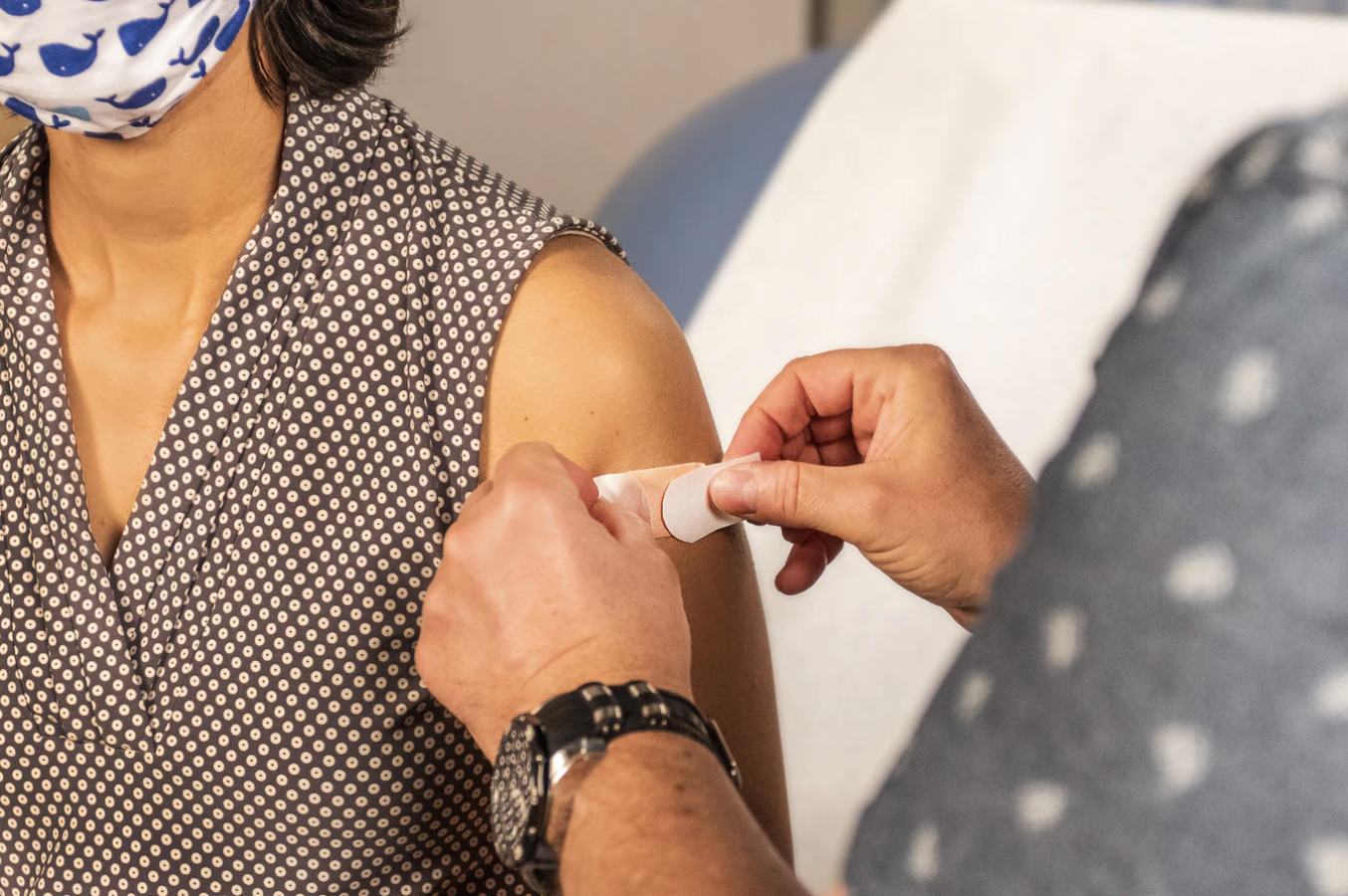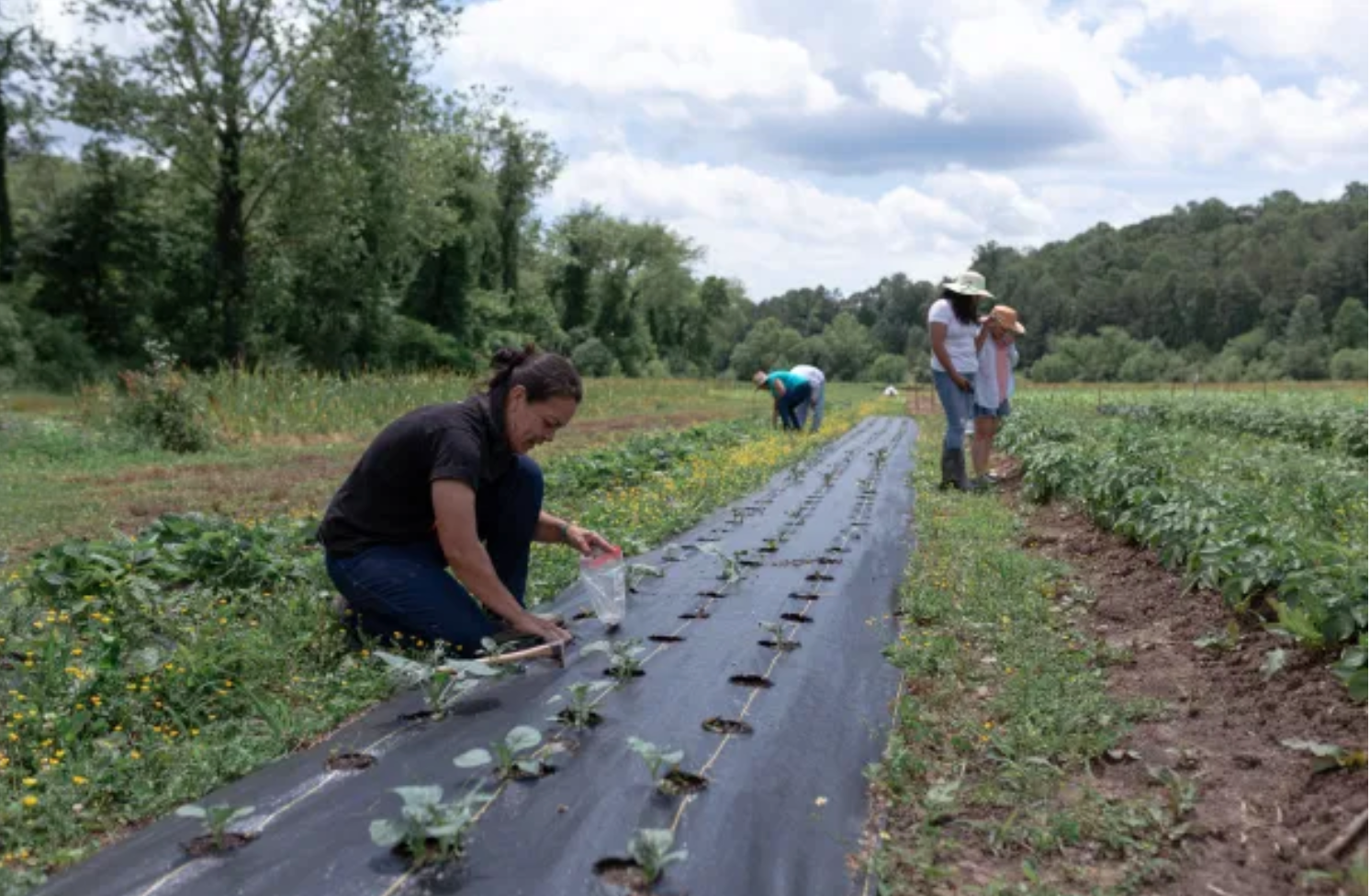Local Platforms for Online Food Delivery Are Eating the Big Guys’ Lunch
Local Platforms for Online Food Delivery Are Eating the Big Guys’ Lunch
By Oscar Perry Abello, Next City, June 15, 2021
Word count: 1598
Special rules: Please include the tracking pixel into the source or HTML view of your CMS when republishing this story. The tracking pixel can be found at the bottom of the story.
Once you’re part of the co-op world, you never can really leave it.
Jon Sewell tried, once. Eight years ago he retired from his career building purchasing cooperatives for hospitals — it’s a common practice in the industry for groups of hospitals to pool their purchasing of certain goods and services for their regular operating needs. It helps to negotiate lower and more stable prices. After retiring, he started a D.P. Dough franchise, selling calzones in Iowa City.
By 2017, he and many other Iowa City restaurant owners were on the OrderUp platform for taking online delivery orders. But that year, national delivery platform giant GrubHub acquired OrderUp and doubled the 15 percent commission it had been charging restaurants.
“There’s no alignment of incentives with DoorDash, GrubHub and UberEats and restaurants,” Sewell says. “Their relationships with restaurants, their key constituency, are bad. [M]aybe 98 percent of restaurants hate them and would love an alternative. The drivers don’t like them — they drive for them because it’s a way to make money and the lifestyle, but they don’t feel a connection to them.”
So, in 2017, Sewell approached some of the other Iowa City restaurant owners about creating their own delivery service, with online ordering, a smartphone app, and drivers as independent contractors. Like the hospital purchasing co-ops that Sewell had helped create and run before, the new platform would be run as a co-op. The commission rates would go back to 15 percent and any profits the platform accumulated would be distributed back to the restaurants. They called it Chomp. Two years later he helped a group of restaurant owners in Colorado’s Front Range region create their own online delivery platform co-op, called NoCo Nosh (Sewell is no longer affiliated with the Colorado group).
Over the past year, with the pandemic making online delivery platforms essential to the survival of independent restaurants, restaurant owners in seven cities have signed franchise agreements with Sewell to launch their own LoCo delivery cooperatives — “LoCo” stands for Locally-Owned Delivery Co-ops — that build on Sewell’s earlier incarnations of delivery platforms owned locally by independent restaurants.
And that’s just one out of 21 examples of locally owned delivery platforms featured in “Special Delivery,” a new report from the Institute of Local Self-Reliance, a national research and advocacy organization that supports locally driven economies.
The report goes on: These apps, while charging lower fees to restaurants and keeping money in their local economies, have found ways to be profitable. (Meanwhile, while gross revenues for the major delivery platforms have skyrocketed, they have yet to turn a profit, ILSR says.)
“Even before the pandemic it was clear there was something about the economics of these delivery apps that just wasn’t working for restaurants,” says Kennedy Smith, co-author of the report. “But before the pandemic it wasn’t as much of a problem. Everything changed last February and March, when the pandemic just completely turned the tables.”
Out of around 660,000 food and beverage establishments across the country, around 110,000 of them closed temporarily or permanently by December 2020 because of the pandemic, according to the National Restaurant Association, a trade group.
Before the pandemic, Smith says, most delivery orders still came in by phone, and online delivery platforms accounted for only a small portion of any restaurant’s business. So the 30 percent commission rates typically charged by the dominant platforms like DoorDash, GrubHub or UberEats represented a big chunk of a small slice of business for most restaurants. The pandemic changed that.
“It’s one thing if a restaurant is paying $100-$150 a month in delivery fees, but when it suddenly is 95 percent of their business with a 30 percent chunk taken out of it, now it really hurts,” Smith says. “Restaurants only net 3-6 percent of their revenues a year, so anything more than that is going to hurt them.”
As Smith was calling around to learn about how cities were responding to the pandemic as an existential threat to small businesses. At least a dozen cities including New York, Los Angeles, Chicago, and Washington, D.C. instituted temporary commission rate caps to soften the blow on restaurants.
But Smith also found many locally owned delivery platforms emerging as a clear and urgent pattern.
“As the pandemic rolled along, there were clear models breaking out from this,” Smith says. “It became this fascinating area of entrepreneurial development by people around the country who saw this clear need.”
As of this writing, most of the platforms Smith found, especially those that launched in the past year, were still in “soft launch” phase. It mostly means they are taking orders and making deliveries but are waiting until more restaurants join the platforms before making a louder marketing push. Pushing too fast too soon could create disappointed customers who don’t have enough variety or enough restaurants who deliver to their locations.
“You really want a balanced menu,” Sewell says. “In Omaha they’ve only got one sushi restaurant on the platform, and sushi is huge in delivery, it’s one of the biggest items. Most people wouldn’t guess that. So you really want to have several sushi places.”
Some of the examples Smith found were co-ops, like Sewell’s growing network of LoCo delivery co-ops.
In Lexington, Kentucky, Aaron Withers launched Delivery Co-op, in which customers, restaurants and drivers are members. Customers pay $25 a month and get unlimited free delivery from participating restaurants. Restaurants pay $300 a month and no commissions, no additional fees, and even penalty-free cancellation. Drivers get paid a base salary of $10 an hour and keep all the delivery tips, which according to the report puts them at about $20 an hour in total earnings. Health benefits kick in after a driver has worked full-time for three months, and after one year of employment they become co-op owners, with profit-sharing privileges. At the end of the year, 20 percent of any profits get redistributed to the restaurants and drivers. By March 2021, Delivery Co-op had 320 members with seven restaurants in its roster, and a waiting list of more than 50 restaurants that will get added as the co-op recruits more drivers — and the co-op was taking requests from other cities for people interested in setting up their own Delivery Co-op franchises.
Sewell’s LoCo delivery co-op franchise network plans to offer ownership status with profit-sharing for drivers after each city’s platform is financially sustainable. As a network, each franchisee is locally owned, but pays a small annual royalty to the parent entity that covers the software maintenance and financial back-end for each local platform. LoCo also provides help during the setup period to get restaurants on the platform and drivers signed up to work with the co-op. Sewell says LoCo offers drivers a base rate of $12-$15 an hour depending on the market. LoCo is currently online in Omaha, Knoxville, Nashville, and Las Vegas, with nascent co-ops forming in Tampa Bay and Orlando, Florida, and Richmond, Virginia.
Other platforms were grouped by some defining features, like those that assign most or all costs to customers. In Magnolia, Alabama, Hot Shots Magnolia Delivery Service launched in December 2020 and began making deliveries a month later. According to the report, it serves customers within 10 miles of its restaurant partners, charging customers 15 percent of the total order, plus a flat $5 fee. There is no charge to participating restaurants. In addition to its regular delivery pricing, Hot Shots offers monthly memberships of $10-40, providing from 5-20 free deliveries.
There’s membership and subscription-based delivery services, like appétit in Buffalo, New York or OrderEats in Albany, Georgia.
One group of local delivery platforms simply charges lower commissions. Chop Chop RVA launched in Richmond, Virginia, in 2018, but had been charging 20 percent commission rates to restaurants. But in February, the Economic Development Authority of the City of Richmond approved a $100,000 grant to Chop Chop RVA that allowed it to lower its commission rate to just three percent for a three month period during the pandemic. The lower rate and working capital are also helping bring in more restaurants, and Smith says that the more restaurants join the platform, the more likely it can stay at the lower commission rate after the pandemic.
High and extractive commissions are just one component of the national online delivery giants that worries Smith. There’s also the data they collect, which ISLR also worries could be used to put competitors out of business.
“If order goes through big apps, they keep the information, so they know what are the popular orders and then go and set up a ghost kitchen to compete with restaurants that are feeding them that information,” Smith says.
For Sewell, local and cooperative ownership of delivery platforms is the only way forward that makes sense. His inbox is flooded with independent restaurant owners interested in starting LoCo franchise co-ops in other cities, without him spending a dime on marketing — and he’s even seeing signs of broader awareness that the big venture-backed platforms aren’t good for anyone other than themselves.
“[Local co-op ownership] is how you get things out of the hands of people who would otherwise abuse the resources that they’ve got, which is exactly what the venture capital-based firms have done,” Sewell says. “I saw a YouTube video with CNBC’s Jim Cramer interviewing the DoorDash CEO. I was shocked how flattering Cramer was to the CEO. But when I looked down at the comments — I always enjoy reading the comments — they were universally toxic towards DoorDash.”
Tracking pixel:
<img src="https://www.google-analytics.com/collect?v=1&t=pageview&tid=UA-2562581-1&cid=8cd49471-101c-4784-aecb-a1f20aaed54c&dh=nextcity.org&dp=%2Fsjn%2Fdaily%2Fentry%2Flocal-platforms-for-online-food-delivery-are-eating-the-big-guys-lunch&dt=%5BSJN%5D%20Local%20Platforms%20for%20Online%20Food%20Delivery%20Are%20Eating%20the%20Big%20Guys%E2%80%99%20Lunch"/>






